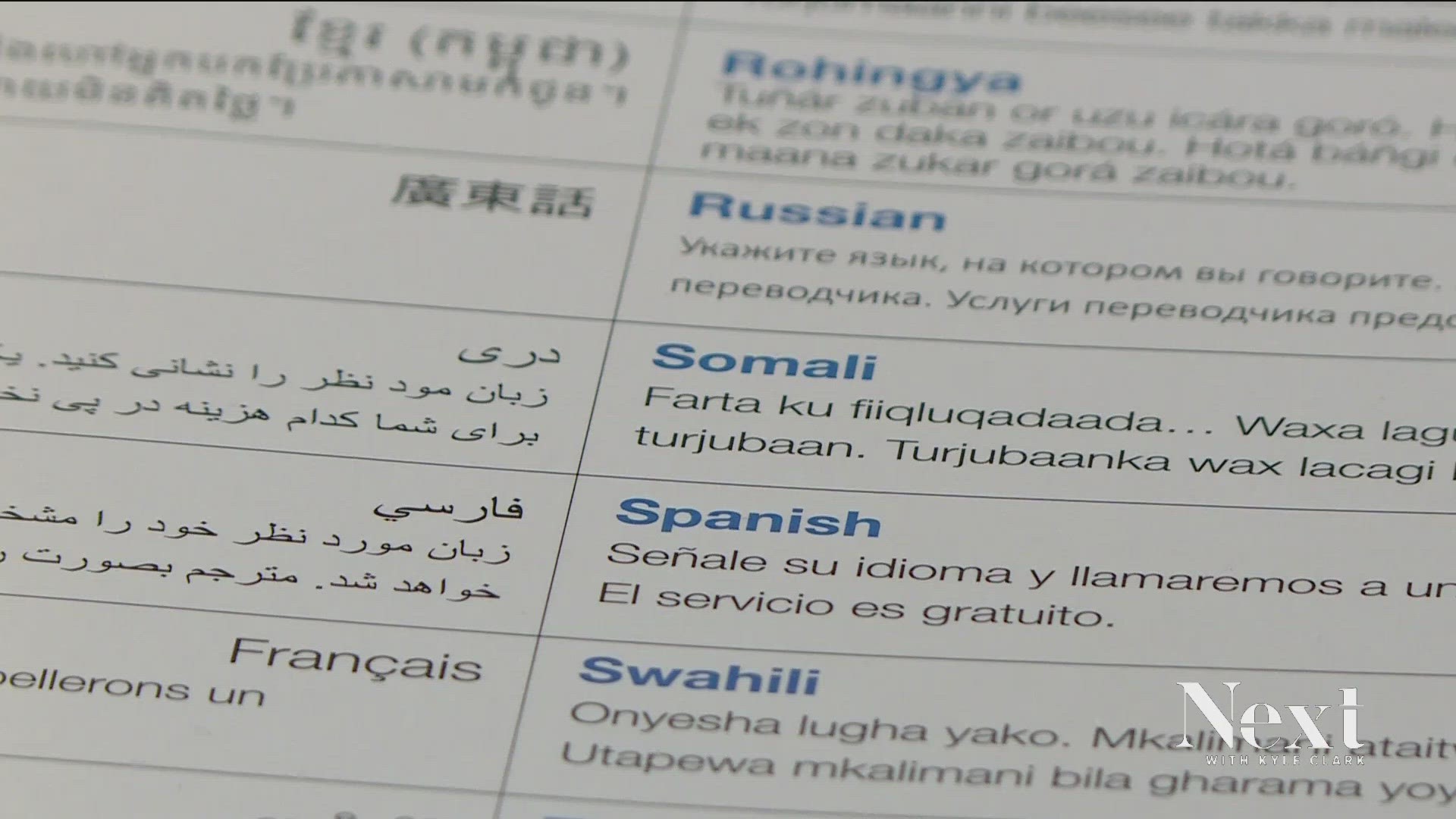DENVER, Colorado — Going to the doctor can be stressful enough. Having a language barrier makes it that much scarier.
Maria López has experienced that kind of anxiety when she went to the doctor. She used to put off going, believing that no one at the hospital would understand her.
"When I felt badly, I didn’t come to the hospital because I didn’t speak English," López said. "If I felt pain, I would wonder, 'Where will I go?' because they are not going to understand me."
It wasn't until a referral to Denver Health that she finally found a medical office where she felt comfortable. The staff has a team of translators available, including those who do the work in person and remotely.
"All of the patients have the same opportunity to have translators," López said. "When the doctors arrive, the translators are with you."
As a dialysis patient awaiting a kidney transplant, she has used the services frequently.
"Before I came here, I went to two hospitals," López said. "I’m not going to say their name out of respect. They told me that they were not going to provide service, to go back to my own country."
Last year, Denver Health had more than 650,000 visits with patients who preferred to speak another language other than English. About 80% of those visits required interpreter support.
The hospital also offers interpreter services for more than 200 languages, free of charge. The large majority of interpretation services are done in Spanish. Other commonly spoken languages at appointments include Vietnamese, Arabic, Russian, French and Nepali.
"We ensure that everybody who has a communication barrier never gets limited to the access of healthcare because of it." said Mary Pamboukis, a medical translator at Denver Health. "So, it’s very rewarding. It fulfills your day, and it makes understand why the providers that we have her are here."
Many translators often create strong bonds with their patients, being the main conduit between patient and provider.
"You’re with them in the good times and the bad times and everything in between because we go through them with everything that they need to get done. When we are not there, we weren’t sure that someone is interpreting for them," said Pamboukis.
"It’s a language barrier but thanks to God, I’ve had the opportunity to have very good translators," said López.
SUGGESTED VIDEOS: Full Episodes of Next with Kyle Clark

